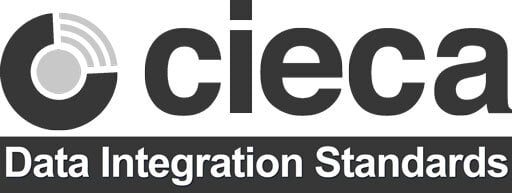The Collision Industry Electronic Commerce Association (CIECA) is a non-profit organization that develops and promotes electronic communication standards that allow the collision industry to be more efficient.
The standards are used by companies across all segments of the industry to communicate with trading partners using a common language. This includes repairers, insurers, information providers, OEMs, recyclers, parts and materials providers, rental car companies and salvage providers.
CIECA has been an important part of the collision industry for more than 25 years.
Q: What does CIECA do?
CIECA is the data standards body for the collision industry. CIECA Standards are developed by committees made up of volunteers from across the industry. When the need arises to add or update a standard, we coordinate with committee members to review the issue, discuss how to best approach it, and develop it accordingly.
Our members have access to all the standards and use them to develop their APIs and webservices.
Q: What is an API?
API stands for Application Programming Interface. It is a connection point that allows one computer application or system to exchange information with another.
Let’s say that you are a collision repair facility that wants to order parts from a supplier. You will need to pass a parts order from your shop management system to a parts provider’s system. Each system will have an API that allows the two systems to talk to each other. For this to work, both APIs must be able to understand each other. That’s where standards come in.
Q: What is a Standard?
Without a standard, companies could still build APIs, but it’s a very time-consuming process. The companies would have to agree on what data they will exchange, how it will be formatted and then validated to ensure the data is accurate.
Standards make this much simpler by developing a common language that companies can use with confidence, knowing that all parties using the standard are using the same vocabulary, the same context and the same structure of information.
Q: What does a standard include?
A standard constitutes a Data Dictionary, a Code List, a Schema and Support Documents.
The Data Dictionary defines all the data elements that could be included in an API. Not only does it define the list of data elements, but also the format —whether it is currency, text or a number. It also identifies field size.
For example, if I am sending you a name field that is 64 characters long and your system only accepts 32 characters, that could be a problem. It is important that the APIs on both ends of the transaction use the same definitions.
One of the most valuable tools CIECA provides is a Code List for every variable and component that may be included in a message between trading partners. Whether it’s identifying the drive train, trim package, parts type, repair status or invoice type, CIECA has codes that enable these transactions. You can think of a Code List as all the variables contained in drop down lists,
radio buttons, and so on.
Once you know what data elements are possible to exchange, you need to know which ones are required and which are optional. The Schema is a blueprint that defines how the data elements are organized and validated.
Support Documents help software developers build APIs with the collective wisdom of years of integration and API development from across the industry. The Support Documents save developers a huge amount of time in setting up a new API and ensuring it will work as intended.
Together, these four components comprise a standard.
For more information about CIECA, visit www.cieca.com.
